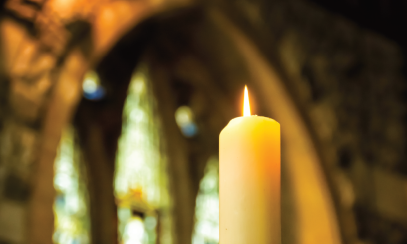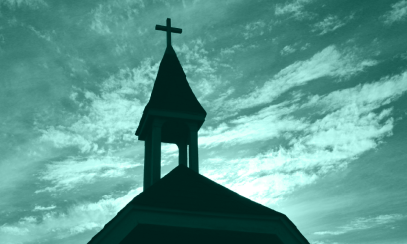When priests sin, are they judged more harshly by God?
Dear Fr. Joe: When priests sin, are they judged more harshly by God?
Dear Fr. Joe: When priests sin, are they judged more harshly by God?
Yes and no. How is that for a safe answer? But it is true, so let’s look at how:
The answer no is because of the nature of sin. To put it in a really complicated way: sin is sin. A lay person committing a sin and a priest committing a sin have affected their souls in the same way – in both situations, the soul is separated from God, and you can’t put a price tag on how painful that is.
Having said that, I will now contradict myself. Yes, a priest is judged more harshly by God. This is not because of the nature of sin; it is because of the nature of the priesthood. If a person in the grocery store shares his or her opinion on a spiritual matter and is wrong, the effects are not nearly as large as a priest giving a homily based on bad theology before 1,200 people in church. Just ask the people who’ve had to suffer through some of my homilies!
Also, it is worse because of the potential scandal that is involved. As we obviously now know, recently reported sins by priests have caused tremendous pain, embarrassment and suspicion among Catholics everywhere. Obviously, the sins of a few priests have brought suffering to all Catholics – priest and laity alike – and because of the greater impact of these sins, the judgment for them, if not repented, is expected to be harsher.
For example, a priest in the confessional can turn someone off to the sacrament of reconciliation for the rest of their lives. A priest having a bad day and saying something hurtful can be someone’s excuse for not going to Church for the rest of their lives.
Dear Fr. Joe: What exactly IS the Holy Spirit?
Did you ever try to define love? It’s tough, isn’t it? It’s often easier to describe the effects of love than to try to nail down the word itself. Well, it’s the same with the Holy Spirit. But, being the “Question and Answer Man,” I shall attempt to do both. So, without further ado, let’s plunge into looking at who the Holy Spirit is and what the Holy Spirit does.
Let’s start with the Catechism, shall we? The Catechism refers to the Holy Spirit as being a few things:
First of all, the Holy Spirit is the third person of the Trinity – the love of the Father for the Son and the Son for the Father. The love of the Father and the Son for each other is so intense that it is a person: the Holy Spirit. This Holy Spirit then is a Spirit of Love. The Holy Spirit is coequal with the Father and the Son and is their love personified.
The Holy Spirit is also the advocate. An advocate is like a lawyer or a defender who speaks for us. This is what the Holy Spirit does. In fact, without the Holy Spirit, we would not even be able to pray (not that we don’t try, though!). Our first step when we pray should not be to inundate God with as many words as possible, but instead to pause, take a deep breath and ask the Spirit to pray through us. I use a simple prayer my mother taught me: “Holy Spirit, rise up in me and pray.” This will help our prayer life tremendously, because it is not about our effort but our openness to the Spirit! What a gift God has given us in the Spirit – He requires prayer from us, and then gives us the means to pray!
Now, we are going to take a different tack. We are going to look at SOME of the ways the Spirit has shown itself in the Scriptures.
The first chapters of the first book of the Bible contain this message: “the Lord God formed man out of the clay of the ground and blew into his nostrils the breath of life” (Genesis 2:7). Those are references to the Holy Spirit and the word used is Ruah which loosely means “the breath of God.” One of the earliest understandings we have of the Holy Spirit is that of God’s breath.
Jumping to the Gospels, we see some radical miracles on the part of Jesus. How did He do it? The Holy Spirit. It was the Holy Spirit that raised Jesus from the dead, gave sight to the blind man, and expelled demons. It was through the Holy Spirit that Jesus was able to say what He said and do what He did.
While that is interesting, here is what is truly awe-inspiring:
Jesus gave the Holy Spirit to us! “And when He said this, He breathed on them and said to them, ‘Receive the holy Spirit. Whose sins you forgive are forgiven them, and whose sins you retain are retained.’” (John 20: 22- 23)
Jesus gave the disciples the Holy Spirit so that they could forgive sins on earth. This has two direct effects on us. First of all, this is how the sacrament of reconciliation works. When you step into the confessional, that moment is brought to you by the Holy Spirit! I know, it sounds like a commercial. In fact, I wanted priests to wear a patch on their clothing that served as an advertisement for the Holy Spirit, but the bishop said “no.” All my good ideas get shot down.
You need more? No problem! Look at the book of Acts: Jesus is risen from the dead, the disciples have seen him, yet they still hide in an upper room. They have the desire and love to follow and die for Jesus, but they don’t yet have the courage until the Holy Spirit comes. After the arrival of the Holy Spirit, they are all over the known world preaching the Gospel and handing it down to us. Each one of those disciples died terrible and violent deaths rather than forsake Jesus. Their past mistakes show us it wasn’t just a matter of their desire; that desire failed them when Jesus was led away to be killed. No, it was the Holy Spirit who helped them, gave them the strength to do what Jesus called them to do.
We can have that Spirit, brothers and sisters, we just gotta ask!



